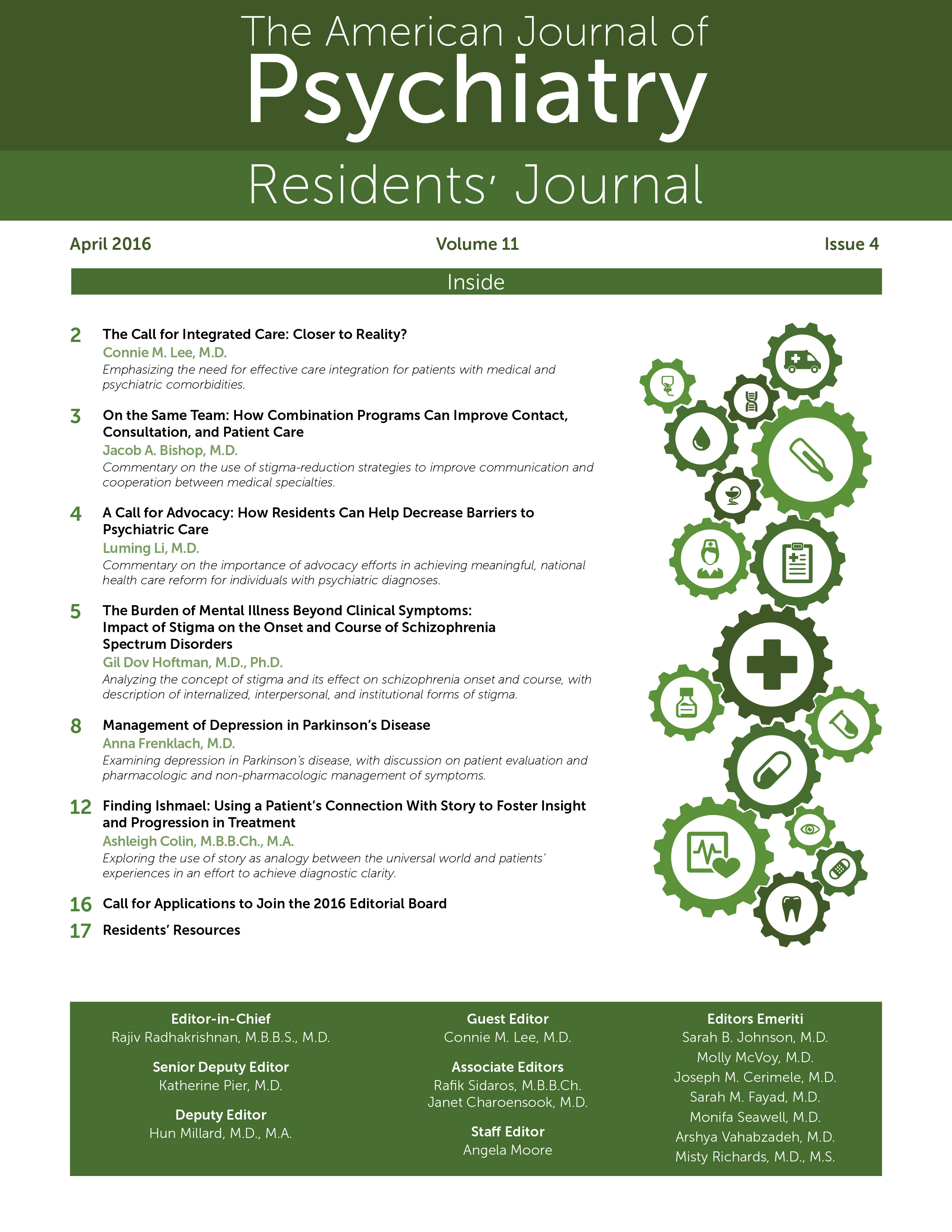Mental health care is fragmented, with services that are variable in quality and scope throughout the United States. Psychiatrists are often not available, not taking new patients, or do not respond to referral requests. Service users have difficulty accessing care in a timely manner, which results in increased emergency visits (
1). Worse yet, many untreated people with mental illness are jailed for misdemeanors or sent to nursing homes at a young age (
2). Even though more than 45% of Americans will have a diagnosable mental illness in their lifetime, many community mental health programs lack sustainable funding for core programs (
3). In this current system, many patients cannot stay well. Although parity laws require equal reimbursement of psychiatric and medical conditions, more comprehensive mental health reforms are needed to improve access to care.
Earlier this year, a comprehensive mental health reform bill was proposed to Congress. The bill, titled the Helping Families in Mental Health Crisis Act, passed a subcommittee vote in the House of Representatives in November 2015. It awaits the full committee vote before reaching the House floor. The bill calls for a new cabinet position (Assistant Secretary for Mental Health and Substance Use Disorders), grant reform and restructuring, more research funding to the National Institute of Mental Health, and expansion of Medicaid and Medicare coverage of mental health services (
4). This bill has gained traction as neutral, bipartisan legislation and is an important step forward.
Residents are important stakeholders in local and national policymaking for several reasons. First, residents are in the frontlines for many inpatient and outpatient services and can contribute useful dialogue about specific patient needs. Second, residents can use insightful clinical vignettes to discuss psychiatric conditions publicly and can educate others about the realities of mental illness and substance use disorders. Finally, residents can be empowered to voice the negative effects of budgetary cuts and ask for additional funding for poorly resourced services.
Residents can help by proactively learning about national reform efforts and participating in advocacy efforts. Most trainees already participate in micro-level advocacy through direct care of patients. This includes consulting social work or making direct referrals to patient assistance programs by calling drug companies for medication subsidies. Advocacy should also include macro-level efforts to support mental health reform. In fact, the Accreditation Council for Graduate Medical Education requires psychiatry residents to develop skills in advocacy, which is a sub-section of systems-based practice (
5).
Residents can participate in the political process through writing op-eds, e-mailing congressmen, and going to open public hearings to talk about resource shortage. These opportunities occur throughout the year. Residents can advocate by reading and forming viewpoints about bills, such as the Helping Families in Mental Health Crisis Act, and can write to state and national legislators about the important of comprehensive mental health reform. Residents can also consider participating in local residency-related grassroots events. Through advocacy efforts, residents can help achieve meaningful, national mental health reform that improves resources and funding for one of society’s most discriminated population.
